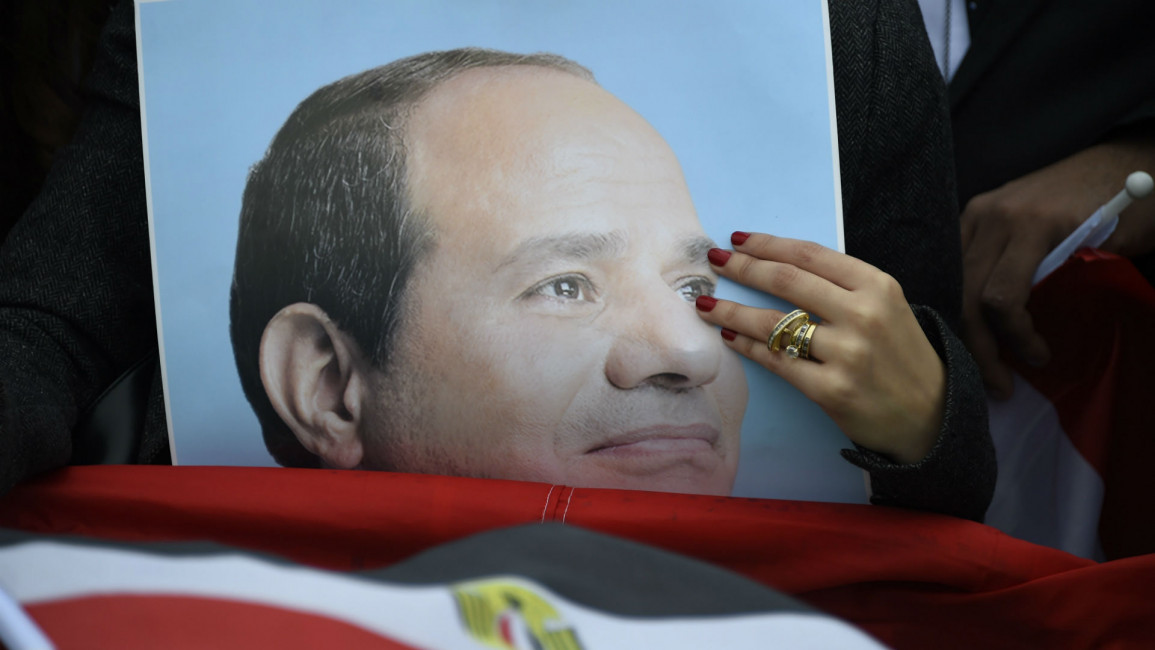Months after acquitting foreign NGO workers, Egypt civil society groups still remain at risk
A defendant in Egypt's notorious "foreign funding" case on Tuesday tweeted a photo of his official acquittal papers received by post.
Many of those involved in the controversial case involving NGO workers were banned from travel, had assets frozen and faced up to 25 years in prison.
"At last! just received my acquittal papers from #Egypt in the notorious NGO foreign funding case. I and my colleagues in the case are now free, but don't forget the many brave Egyptians - including NGO workers - still under threat from gov repression," tweeted Charles W Dunne, a Fellow in at the Arab Center Washington DC.
Dunne was one of 43 defendants in Egypt's notorious "foreign funding" case - also dubbed "Case 173" - part of President Abdel Fattah al-Sisi's vicious clampdown on civil society groups.
Egypt acquitted the 43 civil society defenders - mostly foreigners - who fell foul of draconian laws aimed at curbing the activities of civil society groups.
Months on from the successful appeal, however, the safety of Egypt's NGO workers continues to hang in the balance.
Twitter Post
|
Since the NGOs case opened on 2013, Egyptian authorities have frozen the assets of at least six rights groups and ten human rights advocates, while at least 30 human rights workers and administrators have been banned from travel.
Among the organisations targeted was the renowned Al-Nadeem Centre for Torture Rehabilitation, which was ordered to close in February 2017.
Those still behind bars following the clampdown is Egyptian human rights defender Hisham Gaafar, director of the Mada Foundation for Media Development, who has been held for more than three years in pre-trial detention. The fate of Ezzat Ghoneim, co-founder of the Egyptian Coordination for Rights and Freedoms, is still unknown after he was forcibly disappeared in September last year.
The crackdown on rights groups has been accompanied by a defamation campaign by the pro-government media that portrayed activists behind Egypt's 2011 uprising as foreign agents, paid to plunge Cairo into chaos for the benefit of its enemies.
General-turned-president Sisi has blamed the uprising for the country’s economic woes, labeling it the wrong remedy that followed a misdiagnosis.
Faced with criticism of Egypt's crackdown on civil society groups, Sisi's regime has pledged to revise a law that placed draconian restrictions on the work of civil society groups, with the intention of reducing the veto power given to security agencies over their work.
That task will most likely leave unchanged the restrictions placed on rights and pro-democracy groups, but relax them for medical, housing and social charities.
"Since the 'foreign funding' case was opened Egyptian human rights defenders have been treated as enemies of the state, subjected to an unprecedented crackdown, including asset freezes, travel bans and prosecutions," said Najia Bounaim, Head of Campaigns for North Africa at Amnesty International, following the acquittal of the 43 NGO workers in December.
"The key test now will be whether today's court decision paves the way for an end to the persecution of all human rights defenders in the country. The Egyptian authorities must lift all travel bans and asset freezes against NGO staff and drop their investigations into Egyptian NGOs and human rights defenders for their legitimate human rights work."



